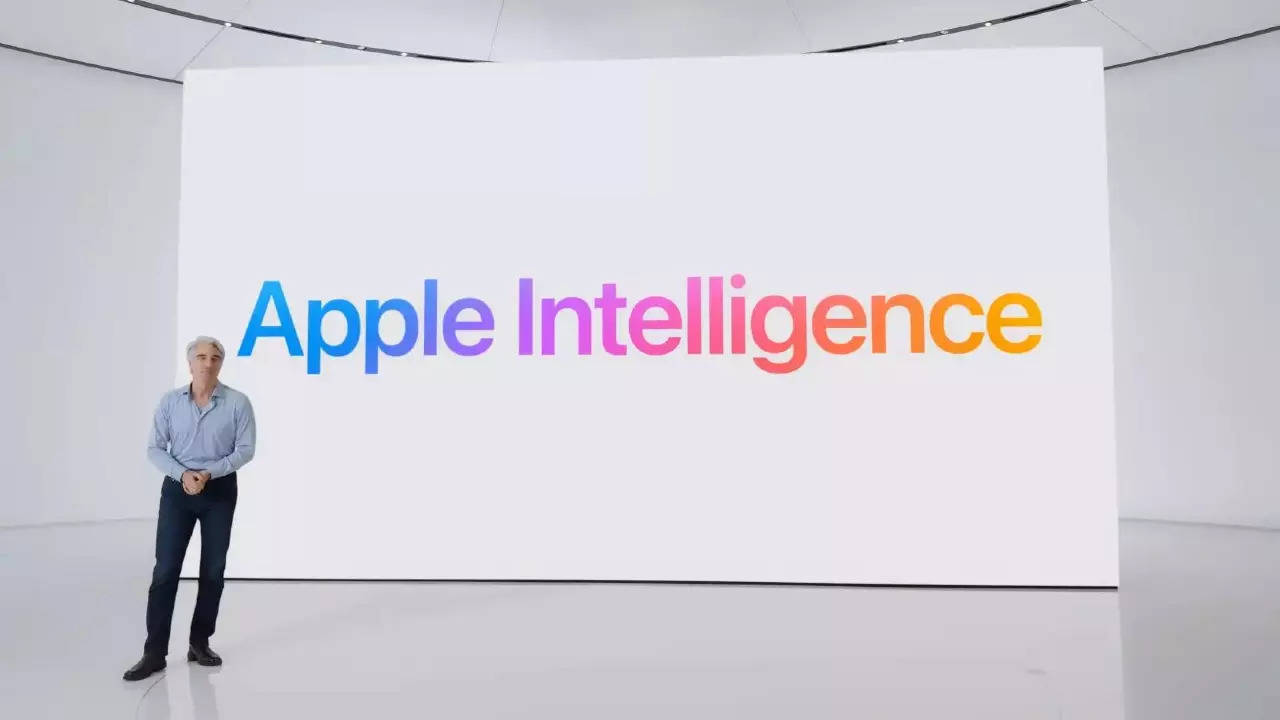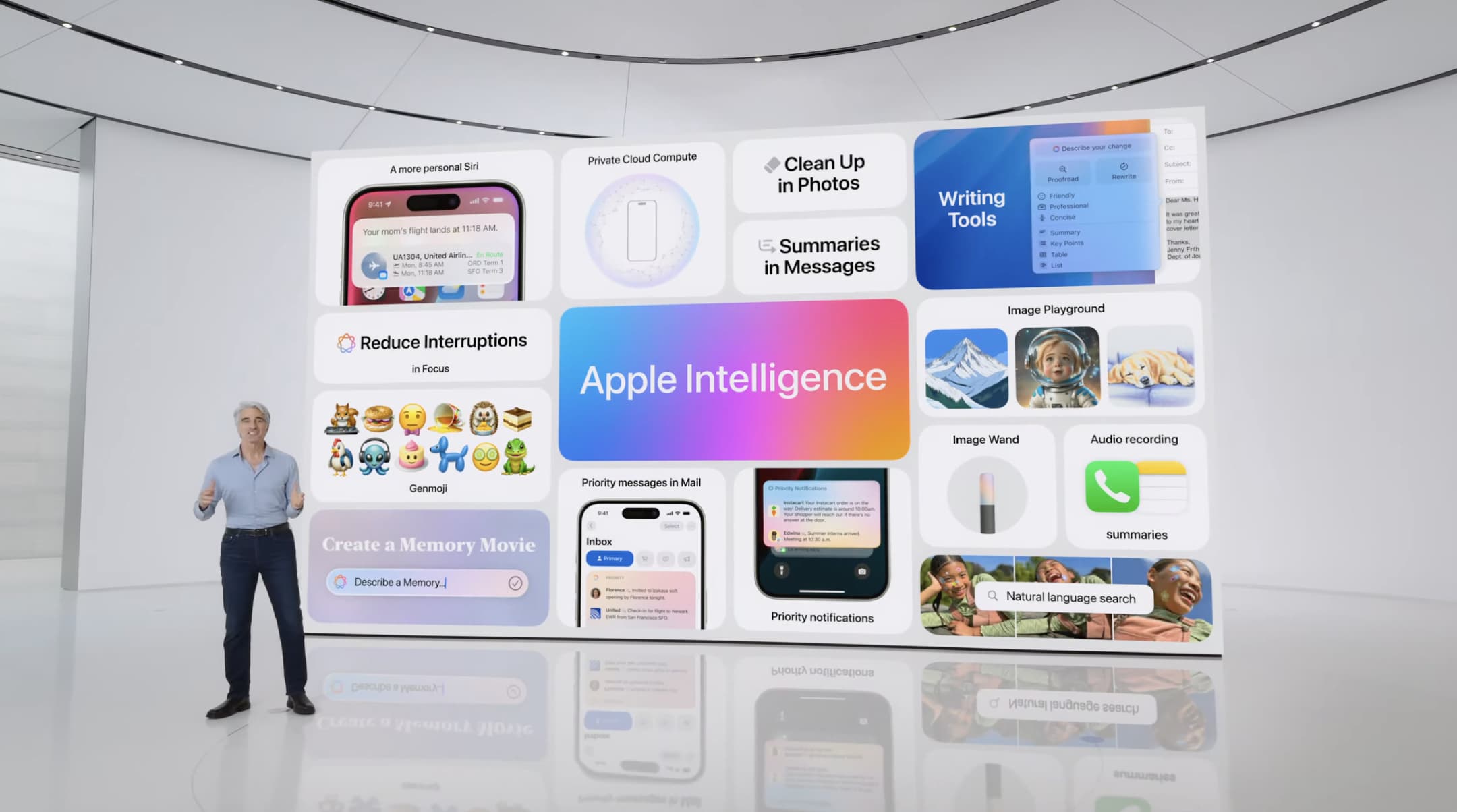Remember when Apple blamed European Union (EU) tech regulations — specifically the Digital Markets Act (DMA) — to justify why Apple Intelligence wouldn’t be available in the EU? Perhaps that was just Apple’s attempt to turn EU users against their regulators, as Apple recently announced that Apple Intelligence would indeed be coming to the EU in April 2025, complete with local language support.
Here's ads banner inside a post
On Monday, Apple released iOS 18.1 with the first set of smart features for recent iPhone, iPad, and Mac models. However, when Apple introduced Apple Intelligence at its developer conference back in June, it also stated that the rollout would be gradual, with new AI features initially limited to American English only. And that remains the case today.
While Apple Intelligence is technically out of the beta stage, you still need to set your iPhone or Mac language to U.S. English to use it. On iPhone, Apple also checks if your Apple account is associated with a European address. If it is, you won’t be able to enable Apple Intelligence on your iPhone, even if you set your device language to U.S. English.
However, things are different on Mac. European users can try out Apple Intelligence features starting Monday if they have a Mac with an M1 chip or later. Users simply need to change the language and can immediately enable Apple Intelligence. Observers believe this is because Apple is designated as a “gatekeeper” under the DMA for iOS, iPadOS, the App Store, and Safari; macOS, however, is not on that list.
Here's ads banner inside a post
Previously, Apple announced that support for other languages was in development, beginning with localized English for different countries in December 2024. Apple plans to add around a dozen more languages throughout 2025, including French, German, Italian, Portuguese, and Spanish.
Interestingly, Apple Intelligence will also be available on iPhones in the EU in just a few months. “This April, Apple Intelligence features will start rolling out to iPhone and iPad users in the EU. This includes many core Apple Intelligence features, such as Writing Tools, Genmoji, a redesigned Siri with richer language comprehension, ChatGPT integration, and more,” Apple stated in a press release.
From this list, it seems that all Apple Intelligence features are coming to the EU, except… notification summaries? We reached out to Apple for more details on which features won’t be available in the EU, and an Apple spokesperson sent us the following statement:
Here's ads banner inside a post
“We are thrilled that iPhone and iPad customers in the EU will have access to many core Apple Intelligence features. Features such as Writing Tools, Genmoji, a redesigned Siri with richer language understanding, ChatGPT integration, and many other capabilities will help users do even more with their devices. Since announcing Apple Intelligence, we have been working to find a path to deliver as many features as possible in the EU in a way that complies with the DMA while maintaining user privacy and security, and to determine what additional product engineering is required. We look forward to bringing Apple Intelligence features to EU users in future software updates.”
It sounds like it may be difficult to tell the differences. Which leads us to this simple question: What exactly was the problem with the DMA again?
Apple’s initial criticism of EU regulations had left many users feeling deprived. However, this may have been a tactic by Apple to pressure the EU into loosening restrictions. The DMA is designed to prevent major tech corporations from dominating markets and manipulating user access to information, and Apple Intelligence’s availability in the EU may be a move to allay fears of monopolistic practices.
With Apple Intelligence, EU users will benefit from a range of new features, including the ability to create unique Genmojis, AI-supported Writing Tools, and Siri with enhanced language processing capabilities. Most notably, the integration of ChatGPT opens up interaction possibilities far beyond what Siri has previously offered. Users will now experience a Siri capable of more intelligent responses, deeper comprehension, and interactions that mimic those of a real assistant.
Overall, the rollout of Apple Intelligence in the EU marks a new milestone in the application of AI technology. However, the regulatory complexity illustrates that even major tech corporations face challenges when trying to launch innovative products in an international market. The issue with the DMA is not simply about rigid regulations but also about ensuring that consumers are protected from manipulation and exploitation of personal data.
In the rapidly advancing tech landscape, regulations like the DMA play an important role in maintaining a balance between progress and responsibility. While Apple has taken steps to overcome these barriers, the delayed rollout and feature limitations in the EU leave many questioning the company’s true motives.

